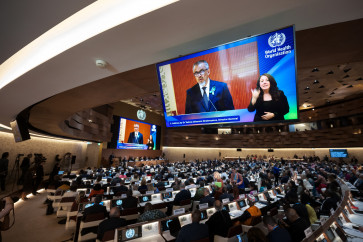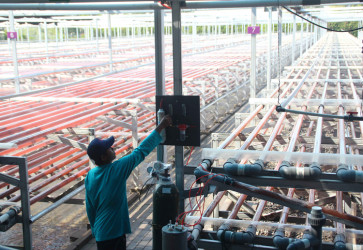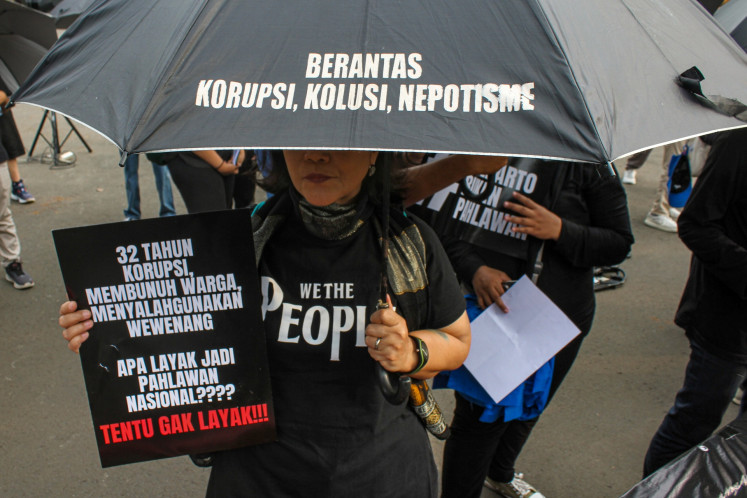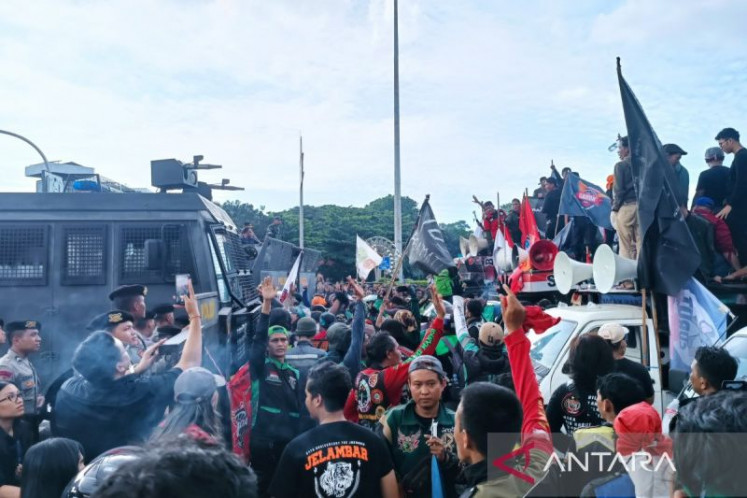Social gap widening: Survey
The International NGO Forum on Indonesian Development (INFID) has called on the government to tackle the growing gap between the poor and rich as it launched a new report showing that most people in the country feel that they are poorer than those belonging to other social groups
Change text size
Gift Premium Articles
to Anyone

T
he International NGO Forum on Indonesian Development (INFID) has called on the government to tackle the growing gap between the poor and rich as it launched a new report showing that most people in the country feel that they are poorer than those belonging to other social groups.
In a report entitled “People’s Perception of Social Gap 2017” published on Thursday, INFID said 84 percent of the 2,250 respondents involved in the survey perceived there was a gap in at least one socioeconomic field.
It shows that eight out of 10 Indonesian people perceive there is a gap in the country.
An increase in people’s perception of the social gap they are encountering indicates no significant effort has been made in tackling gaps in various fields.
Evaluation towards the government’s efforts to tackle social gap problems in Indonesia needs to be conducted more systematically so that improvements taken can be targeted, the report says.
“Our survey reveals that according to the people, there has been an increase in the social gap. The social gap index has increased to 5.6 in 2017 from 4.4 in 2016. It means each Indonesian citizen perceives there are five or six fields where people are now facing inequality. This is quite high,” said INFID researcher Bagus Takwin.
Supported by psychologists from the University of Indonesia (UI), INFID conducted a survey on 10 socioeconomic fields most people perceived as the major sources of inequality.
They comprise income, employment, house or residence, wealth, family prosperity, education, living environment, political involvement, law and health.
Conducted in 34 provinces for two months, the survey aimed to reveal people’s perception of the social gap for the 2015-2016 period.
“We focused our survey on people’s perception because it is psychological factors that have instigated conflicts,” Bagus said.
Income is perceived by Indonesians as a field with the highest level of inequality, standing at 71.1 percent. It is also income that has played the greatest role in creating a social gap in the country. This is because an income gap can impact on people’s opportunities to get wealth, houses, education and health care services. Income inequality has the greatest influence in the social gap, the report says.
At 62.6 percent, employment ranks second with the highest level of inequality. It has also become the biggest factor that can result in the social gap.
Social inequality is higher in eastern Indonesia compared to other parts of the country.
The study recommends improvements in several public policies, such as providing unemployment allowances and internship programs for citizens aged above 30.
Bagus said although income was an indicator in the study, authorities should also consider two other factors, people’s purchasing power and access to welfare, in addressing the social gap.
“Millennials now receive a bigger salaries compared to their parents. However, they cannot afford to buy a house,” he added.
Hamong Santono of INFID said it had been made clear by the study that President Joko “Jokowi” Widodo should make better use of post-infrastructure treatment and improving the quality of human resources in the country.
“Building infrastructure won’t be enough,” he added.
Jokowi is widely perceived as a leader with high ambitions in building roads, ports and bridges for people in remote areas, for which he issued a One Map Policy through Presidential Decree No. 9/2016 that regulates infrastructure development.
Yanuar Nugroho, deputy to the Presidential Chief of Staff, said several issues, such as a lack of accurate data on city planning had hampered the government’s efforts in solving the social gap.
“Regional administration should always update data on their space planning. However, many have not updated their region’s data in 15 years,” he added.
Yanuar asserted that inaccurate data at regional level could lead to losses in the national development plan, which would eventually lead to perpetual poverty and the social gap. (gis)









